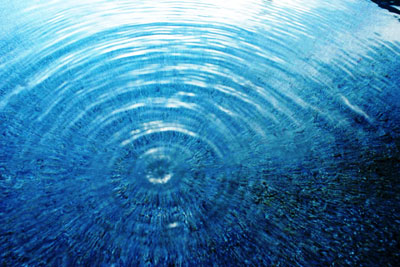All Nonfiction
- Bullying
- Books
- Academic
- Author Interviews
- Celebrity interviews
- College Articles
- College Essays
- Educator of the Year
- Heroes
- Interviews
- Memoir
- Personal Experience
- Sports
- Travel & Culture
All Opinions
- Bullying
- Current Events / Politics
- Discrimination
- Drugs / Alcohol / Smoking
- Entertainment / Celebrities
- Environment
- Love / Relationships
- Movies / Music / TV
- Pop Culture / Trends
- School / College
- Social Issues / Civics
- Spirituality / Religion
- Sports / Hobbies
All Hot Topics
- Bullying
- Community Service
- Environment
- Health
- Letters to the Editor
- Pride & Prejudice
- What Matters
- Back
Summer Guide
- Program Links
- Program Reviews
- Back
College Guide
- College Links
- College Reviews
- College Essays
- College Articles
- Back
Inmate Name: Orca
Although marine parks and aquariums provide a sense of fun to their customers, they stop animals from feeling free. Many people are attracted to marine life because it is interesting to examine the behavior of animals not normally seen everyday. When I was younger, I loved going to Seaworld and getting splashed by Tilikum, but I never thought he was in pain until this year. Because Tilikum is not human, I assumed he did not feel sadness. People do not realize that despite our different physical structures from marine animals, both humans and marine life share similar emotions. Emotions such as grief and happiness seem exclusive to humans, but orcas experience them too even though they are not capable of expressing them through words. Confining marine animals to marine parks and aquariums for the sake of human entertainment is selfish and would only drive them to frustration.
Because humans usually express sadness through words, they forget that orcas feel depressed when confined to jail-like marine parks and aquariums. To showcase their unhealthy mentality, captive orcas have collapsed dorsal fins. Their collapsed dorsal fins are caused by their frustration towards tight spaced pools and separation from their natural habitat (“8 Reasons Orcas Don’t Belong at Seaworld” par. 3). Orcas also possess an additional part in their brain that elevates their process of emotions while humans do not. It allows them to experience feelings at a much more extreme extent than humans. Because of this, captive orcas go through deeper depression than humans. Since orcas and humans share similar emotions, orcas should not be forced to live in unnatural habitats for entertainment purposes. It is too detrimental for orcas to live in marine parks and aquariums considering most captive orcas have collapsed dorsal fins. Humans can find entertainment elsewhere without harming the mental state of orcas and imprisoning them.
Because captive orcas are imprisoned in pools that are compact compared to the ocean, they are unable to swim the hundreds of miles wild orcas are able to swim. The inability to swim freely drives them to chew on the pool’s metal gates, which damage their teeth. Some killer whales with destroyed teeth have to painfully get “those teeth removed by staff wielding power drills” (Nye par. 5). If captive orcas are willing to risk their oral health to break free from the metal boundaries, they are obviously unhappy in marine parks and deserve to be released. Marine parks and aquariums exhibiting orcas ignore their depressing behavior and continue to exhibit them for amusement. The tricks in the shows are so fascinating that they distract customers from the fact that the orcas are mentally and physically suffering. People are convinced that because the orcas display fun behavior, the orcas enjoy their limited lifestyle. Unfortunately, the truth remains hidden behind the fun shows since captive orcas literally try to chew their way out to freedom when they are not forced to perform. Because they suffer in confinement, marine parks and aquariums are unstable environments for orcas to be exhibited in.
Orca lovers complain there is a downfall in the orca population. Many argue that exhibiting orcas in marine parks and aquariums can increase awareness of their declining population. They think public displays of orcas are necessary to “encourage people to think more about… what they can do to help preserve and protect” them (Raja par. 11). However, the main solution to preserving and protecting orcas are to leave them in their natural habitat instead of confining them to unhealthy environments. One of the main reasons why the population is declining is because they are captured from the ocean and transferred to marine parks and aquariums. Holding orcas captive will only keep them from naturally increasing their population and escalate their frustration.
Because orcas experience emotions similar to humans and physically suffer from confinement, they should not be exhibited in marine parks and aquariums. It is selfish to keep them captive for entertainment purposes since they prefer to live in a habitat where they can swim freely. Although marine parks and aquariums can increase awareness of their falling population, the best solution for the captured orcas is to keep them in sea pens since they are similar to their natural habitats. If they were released to the wild, it would be hard for them to transition from an environment surrounded by humans to the ocean where they live freely on their own.
Works Cited:
“8 Reasons Orcas Don’t Belong at Seaworld.” Seaworld of Hurt. PETA, n.d. Web. 24 September
2015.
Nye, James. “‘Killer whales at Seaworld had teeth removed with power drills and were left to mourn on own after being separated from young', claims shocking new book.” Dailymail.com. Associated Newspapers Ltd, 19 July 2012. Web. 24 September 2015.
Raja, Tasneem. “Seaworld Says It Has to Keep Orcas in Captivity to Save Them.” Mother Jones. Mother Jones and the Foundation for National Progress, 2014 November/December. Web. 24 September 2015.

Similar Articles
JOIN THE DISCUSSION
This article has 0 comments.
